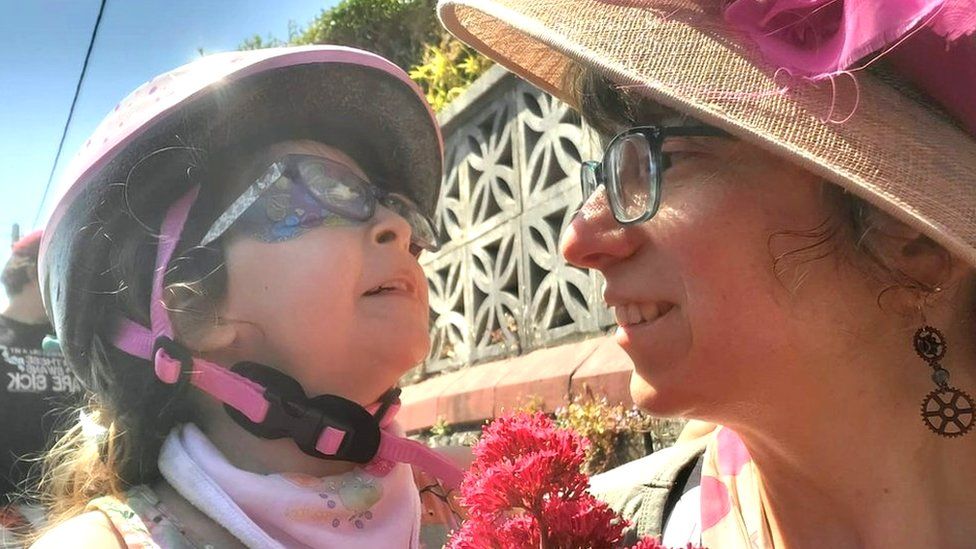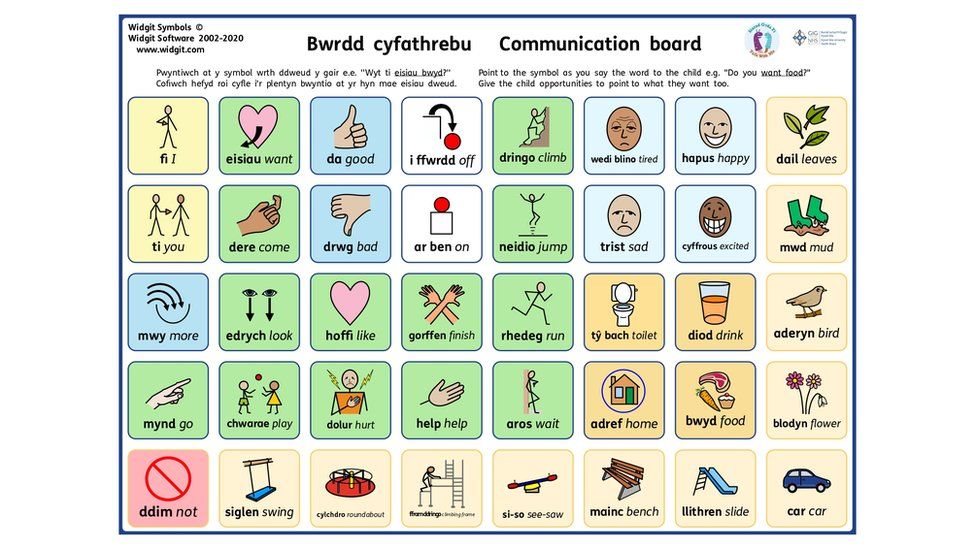Welsh parents of children with speech and language impairments have praised the installation of new communication boards in parks.
To encourage interaction and play among kids, more than 300 symbol-based communication boards have been placed in parks and other public areas.
Additionally, there will soon be a wider selection of Welsh accents available for kids who use voice technology to aid in communication.
The programs have received funding totaling almost £300,000.
The funding comes from the Talk With Me program of the Welsh government, which offers guidance to parents and caregivers of children up to age five.
The boards feature a variety of symbols that represent helpful words like "want," "tired," "wait," "food," and "play.".
Lina, a five-year-old from Caerphilly County, recently used the town's communication board for the first time.

Rebecca Meyrick, Lina's mother, said: "When kids want to play and hang out in the park, the last thing they want to be thinking about is carrying around a tablet or paper or other available communication pieces. ".
Hywel Dda University Health Board's Libby Jeffries, a speech and language therapist, said: "We've heard of families in parks with a child who was very upset and overwhelmed, and the family would have gone home.
It was a very positive play session in the park after they noticed the board and the child was able to indicate what they wanted to do. ".
A total of 16 new voices will be made available as part of the project to create new Welsh voices and accents for communication technology, each of which will represent a different region and dialect of Wales.

Children currently have a choice between a Welsh adult voice with an English accent or a children's voice with a Welsh accent.
It was created by the Cardiff and Vale University Health Board, CereProc, Bangor University, and a speech synthesis company.
Anthony Meyrick, Lina's father, stated: "She'll be able to sound like her friends, because right now she really doesn't like anything that makes her stand out from her peers. ".
"We anticipate that these new voices will further lower barriers to children using high-tech communication devices in Wales, allowing them to speak with an accent and language representative of their family and peers," said Dr. Jeffrey Morris, director of the electronic assistive technology service for Wales.
. "







